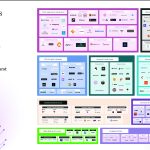
Gurhan Kiziloz Built a $400M Platform Without Much Fandom, Now Comes the Hard Part
In 2024, Nexus International posted over $400 million in revenue from its gaming platform Megaposta, largely through operations in Brazil. Despite the scale, the company remains largely absent from public view. No press tours. No product launches. No founder spotlight.
The man behind it, Gurhan Kiziloz, is equally reserved. While some entrepreneurs use media to shape a narrative around growth, Kiziloz has kept Nexus off the public stage. The company has no visible roadmap and avoids traditional communication strategies. Its next target, $1.45 billion in revenue by 2025, has been shared quietly, without the usual trappings of a company signaling hypergrowth.
What Nexus offers, instead, is execution. Its Brazil strategy relied on early licensing, compliance-heavy infrastructure, and offline user acquisition. That combination, more procedural than flashy, yielded market share in a space often dominated by more visible platforms. There are no public user numbers, and internal data is rarely disclosed, but the reported revenue figures place the company among the larger players in the sector.
Inside Nexus, the structure is functional and reportedly lean. Hiring has scaled to meet operational needs, but there’s little public information about the size or composition of teams. People close to the company describe a culture oriented toward delivery, not visibility. That makes Nexus something of an outlier in the gaming space, where public-facing brands typically dominate.
Kiziloz himself has rarely given extended interviews. He has, in the past, referenced his ADHD diagnosis and the role it plays in his decision-making, particularly around speed and risk. In a sector that often prizes planning and consensus, that approach can look unconventional. Whether it’s a long-term advantage or a liability remains to be seen.
He’s also been candid about failure, pointing to earlier ventures that faced legal or reputational issues. He tends not to frame those experiences as cautionary tales but as part of a process. In that sense, Nexus appears built on the idea that speed, trial, and adjustment are more useful than fixed strategies.
Outside the business, Kiziloz funds several philanthropic projects in Gambia, including food distribution and water well construction. These efforts are not mentioned in Nexus materials and are run personally, without corporate affiliation.
If Nexus reaches its 2025 revenue goal, it will represent a 263% increase year-over-year, a sharp jump by any standard. Whether the company can meet that figure without the operational drag that often accompanies scale is unclear. There’s also the question of whether a low-profile approach can hold in more competitive or regulated markets, should Nexus move beyond Brazil.
For now, Nexus presents a case that sits slightly outside the norm: a company growing quickly, but quietly. One that treats visibility as optional and results as the only deliverable worth tracking. Whether that formula holds will be easier to assess after 2025. Until then, Nexus is executing its playbook, largely unnoticed.















